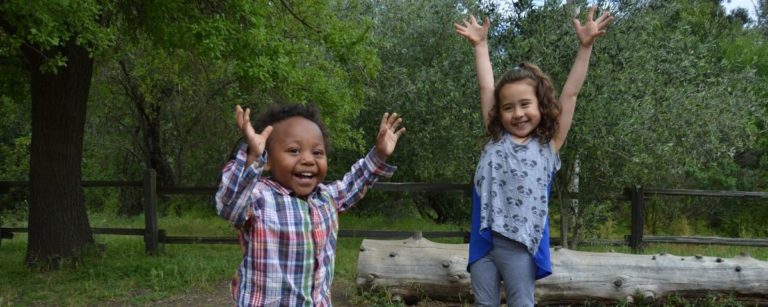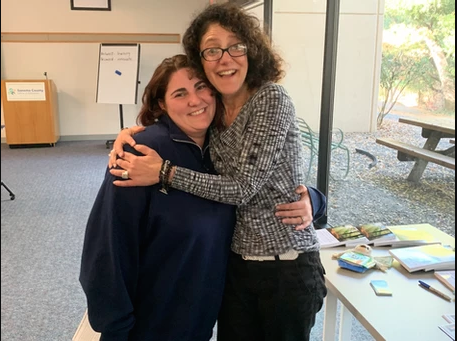Strategies to Decrease Defiance in Children
By Jenn Hook, MA
When I talk with foster and adoptive parents about the things they are struggling with, dealing with a defiant child often tops the list. And for good reason. Parenting a defiant child can be incredibly frustrating. Parents try strategy after strategy to try to get their kiddos to comply, and nothing seems to work. At some point, parents throw up their hands and give up. If it isn’t addressed, defiance can lead to decreased well-being in both parents and kids, marital troubles, and failed foster placements. But what is defiance, and how can we help guide our children toward more effective behaviors?
What is Defiance?
Defiance refers to episodes of unexplained irritability, sadness, or fearfulness that are present even during non-threatening interactions with adult caregivers. Some of the most common forms of defiance include the following:
-
Frequent temper tantrums
-
Excessive arguing with adults
-
Questioning rules
-
Refusing to comply with requests
-
Deliberate attempts to annoy or upset people
-
Blaming others for mistakes or misbehavior
-
Easily annoyed by others
-
Frequent anger and resentment
-
Mean and hateful talking when upset
-
Spiteful attitude and revenge-seeking behavior
Trauma and Defiance
It is important to acknowledge the close connection between trauma and defiance. Defiance isn’t usually the result of “bad parenting,” and it doesn’t mean you have a “bad kid.” Children with a history of trauma exhibit a greater degree of defiant behavior than children without a history of trauma. Trauma compromises a child’s ability to regulate and process sensory inputs. Trauma also makes emotional regulation challenging. And finally, trauma increases vulnerability to stressors.
When a child has experienced trauma, it is important to view defiant behavior through a trauma lens. It’s important to see beyond the behavior. Children who have a history of trauma are often in survival mode. Their gear shift is stuck in fight, flight, or freeze. It can be helpful to think about these behaviors as a deficit, not defiance.
Three Trauma Informed Strategies
Now that we understand what defiant behavior is and where it comes from, we can help guide children toward more effective behaviors? Here are 3 strategies that can be helpful when engaging with a defiant child.
-
Create a Structured Environment.
-
Ride out the wave: tune into your body and use coping strategies.
-
Connection is Key.
Create a Structured Environment
Often as parents we want a “quick fix” to apply when our children are melting down. But a lot of the helpful things we can do happen before a child is having a meltdown. One of the key strategies for helping children with defiance is to create a structured environment. When children are well-rested, engage in regular physical activity, and get sufficient nutrition throughout their day, they are better able to regulate their emotions.
Take this advice to heart! If you struggle as a family in this area, make this priority #1. Every single day, focus on having your kids get enough sleep, engage in activities that get their bodies moving, and have enough snacks and water available for them throughout their day. Also, it is helpful to have predictable routines that happen every day. For example, have a routine for the morning, for when they get home from school, and for bedtime. When kids know what to expect every day, it increases their feelings of safety. Even if you are a more free flowing person, try to structure your family environment for the sake of your child.
Ride Out the Wave: Tune into Your Body and Use Coping Strategies
By the time a child is having a temper tantrum, it is usually too late to intervene effectively. (You often just have to ride it out.) But there is usually a build-up before a child loses control, and it can be ineffective to intervene during the buildup. (Sometimes the metaphor of a balloon can be helpful to illustrate this. A balloon builds up, builds, up, builds up—and then it pops.) Help kids monitor their body and try to figure out what they need before escalating. For example, do they have a lot of energy that they need to get out? Try something physical like chair pulls or wall pushes. Do they need something to help calm them down? Try something like soothing music or massage. There are a variety of coping strategies to try—try a few and see what works for your child.
Connection is Key
This last point can be challenging, but as much as possible, remain connected with your child as they are being defiant. Many parents disconnect from their child during correction and discipline, but this can actually exacerbate a child’s behavior. Instead, stay connected. Make sure you are staying calm yourself (i.e., calm face, calm voice, calm body posture), and engage the child on their level. Responding playfully could strengthen connection. Playfulness disarms the fear response, so get in touch with your playful side if possible. Instead of giving a time-out and sending your child to be alone in their room, try a time-in. Stay connected with your child and clean up the mess together, for example. Remember, even when correcting, you have the opportunity to continue to build the attachment relationship between you and your child.
If You Need More Help
If you are dealing with very challenging behaviors, it is a good idea to get a psychological assessment for your child. This can clarify what is going on with your child, and whether there might be other challenges (such as ADHD) present. The psychologist who gives the assessment will also give recommendations for counseling or other strategies to get more help. Remember, you aren’t in this alone. If you feel overwhelmed, you might need a higher level of care.
Discussion & Exploration
What have been some of your most effective strategies for navigating defiant behavior with your children? Here are more coping strategies to explore (https://www.verywellfamily.com/coping-skills-for-kids-4586871). What questions do you still have?
Jenn Ranter Hook, MA, is the Founder and Executive Director of Replanted – a ministry that provides post-placement support to foster & adoptive families through support groups and the Replanted Conference. She received her Master’s Degree in Clinical Psychology from Wheaton College. She previously worked as a trauma therapist for children and adolescents in foster care. She speaks frequently on topics related to adoption and foster care support, mental health, and trauma. She is the author of Replanted: Faith-based support for foster and adoptive families, a mom to 1, a wife to Josh, and a Canadian! Jenn collaborates with Help One Child with Replanted’s faith-based support group curriculum and starting in 2022, as a parent trainer, blog and podcast contributor.









